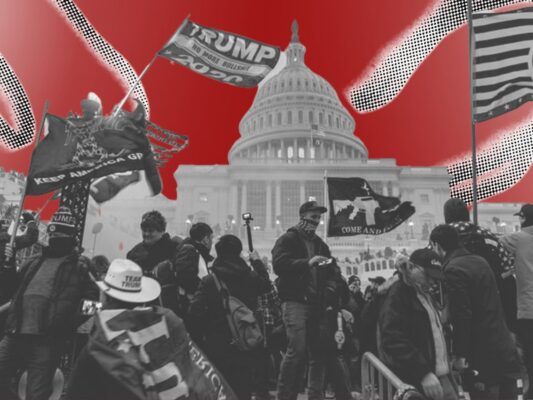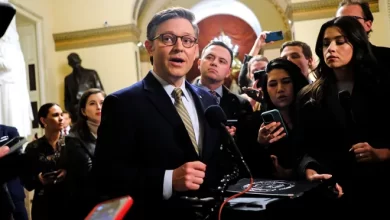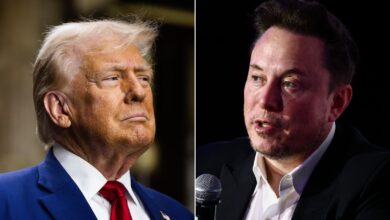The missed opportunity: How Merrick Garland’s Justice Department ran out of time to prosecute Trump for January 6.

Following the January 6, 2021, attack on the U.S. Capitol, the Justice Department embarked on its largest investigation in history. FBI investigators initially pursued leads suggesting Donald Trump had direct connections to the violence, including a tip that he may have met with members of the far-right Proud Boys, who were implicated in some of the day’s most brutal acts. The DOJ hoped that such leads would provide evidence linking Trump to the insurrection, but ultimately, those efforts yielded no criminal ties.
At the time, Trump was politically weakened. Many Republican lawmakers distanced themselves from him, outraged by the riot he had incited. Within the DOJ, two schools of thought emerged: some believed early pursuits of provocative but ultimately unsubstantiated leads wasted valuable time, while others argued that these lines of inquiry were essential to ensure all potential evidence was thoroughly investigated. Critics of the DOJ’s approach would later call 2021 “a lost year,” pointing to missed opportunities to build a case against Trump when he was politically vulnerable.
Early investigations focused on several areas: potential meetings between Trump or his inner circle and the Proud Boys, financial records that might link Trump to organizations funding the January 6 rally, and the “war room” at the Willard Hotel in Washington, D.C., where Trump allies, including Steve Bannon, plotted strategies to overturn the election. Despite extensive efforts, no evidence directly connecting Trump to the Capitol attack emerged. Investigators spent months poring over phone records, financial documents, and interviews, only to find themselves at a series of dead ends.
As time passed, internal debates within the DOJ about how to proceed grew sharper. Some officials believed that prosecuting a former president was always going to be a years-long process due to the constitutional questions involved, such as presidential immunity and the separation of powers. Others argued that the DOJ could not afford to operate on such a protracted timeline, given the ticking political clock and Trump’s steady return to political prominence. By the end of 2021, Trump was no longer a pariah but the frontrunner for the Republican presidential nomination.
In August 2023, after years of investigative hurdles and legal battles, special counsel Jack Smith brought an indictment against Trump. The charges alleged that Trump conspired to obstruct an official proceeding, defraud the United States, and undermine the peaceful transfer of power. Prosecutors had hoped to bring such charges sooner, but internal delays, legal challenges, and the Supreme Court’s slow-moving decisions on executive privilege hampered progress. Two former DOJ officials familiar with the investigation later argued that the charges could—and should—have been filed a year earlier.
Throughout the investigation, Trump and his legal team employed delay tactics, invoking executive privilege and, later, absolute immunity. These strategies allowed Trump to run out the clock while maintaining his political momentum. By the time Trump announced his 2024 presidential campaign, the investigation was mired in delays, compounded by the Supreme Court’s eventual decision in July 2024 granting Trump broad immunity for actions taken during his presidency. While the ruling was not entirely fatal to the DOJ’s case, it severely weakened it and left prosecutors scrambling for a path forward.
With Trump cruising toward reelection and a return to the White House, the Justice Department’s window to hold him accountable narrowed. By November 2024, Trump had won the presidency, effectively ending the possibility of his prosecution. Smith consulted with DOJ leadership, who confirmed that department policy prohibited charging a sitting president or president-elect. In a federal court filing, Smith conceded that the charges would have to be dismissed but argued that Trump’s immunity should be considered temporary and not a blanket shield against future legal action.
Judge Tanya Chutkan, who oversaw the case, dismissed the charges “without prejudice,” meaning they could theoretically be refiled in the future. However, the five-year statute of limitations on many of the charges is set to expire during Trump’s upcoming term, making a future prosecution unlikely. Prosecutors and legal analysts viewed the dismissal as the effective end of the case.
Inside the DOJ, officials are now grappling with the aftermath of their failure to hold Trump accountable. Critics have pointed to the early missteps of 2021 as the root of the problem, arguing that the DOJ wasted precious time chasing unsubstantiated leads and failed to act decisively when the political environment was more favorable. Others within the department bristle at such criticism, emphasizing that prosecutors were simply following the evidence and navigating the complexities of an unprecedented investigation.
As Trump prepares to return to the White House, the Justice Department is left to reflect on a lost opportunity. The investigation, which began with high hopes of accountability for the Capitol attack, became mired in political and legal challenges. Despite years of effort, the pursuit of justice for January 6 ultimately fell short, underscoring the difficulties of prosecuting a former president in a highly polarized political climate. For many, the case represents not only a failure to hold Trump accountable but also a missed chance to defend the principles of democracy.



